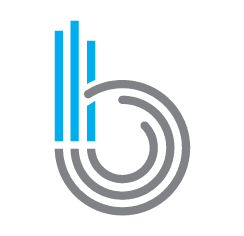When was the last time you listened to a sales call? Chances are, you are still thinking back to it right now because it’s been a while. With cell phones and caller ID, there’s a lot more call screening, call blocking, and flat out hanging up on persistent sales callers.
With the increasing move toward technology, everything about sales and marketing has changed; salespeople are finding their tried and true methodologies less and less effective. Even when sales calls were more prominent, they were never incredibly efficient, often requiring hundreds of calls a week to land even a handful of appointments. So what are struggling sales teams to do?
The fact is that sales teams need to be thinking differently about sales and marketing. The internet has become an information superhighway, making buyers less reliant on retailers for information. Instead, people can read reviews and do research before making purchasing decisions. This shift in society’s attitudes towards buying indicates a larger change in how the introduction to digital has changed the market, and with it, the content and methods that are valued by consumers. This has allowed methods like content marketing to not only expand but thrive in this education-focused environment.
Education as an All-Access Pass
When salespeople are cold calling prospects, they are taking a risk. Often, when they do reach a person willing to talk to them, that person may not be ready to buy. Even more so, they may not remember the sales call later on when they are ready to buy. The reason sales face this issue is simple — the message they are promoting only aligns with people ready to purchase. But time and time again, we’ve acknowledged that most of the people sales talk to are not sales-ready. This means that the message in question will fall on deaf ears.
Education allows for a discussion — one that answers the important questions no matter where the customer is in their buyer’s journey. It also allows a business to be an industry leader. Providing straightforward, educational information on a product or service establishes credit as a trusted source. When a business offers information at each level of the buyer’s journey, they establish reliability and stay relevant to those not ready to buy. This allows a company to stay in the game longer, so when a prospect is sales-ready, they have someone in mind with a positive reputation.
Education as a Sales Tool
The key point of education over sales is that not everyone may be ready to purchase. As such, approaching them with a purchase mentality can be a detrimental mistake. However, just because education focuses on those who aren’t necessarily sales-ready, doesn’t mean it isn’t an important sales tool.
The point of the buyer’s journey is that a buyer can be moved along through their journey with targeted content that matches the sales funnel. This means providing the right information at the right point of time to educate a prospect while gathering their information. This methodology allows sales to follow leads until they hit a “sales-ready” point. At which point, sales begins to directly engage with the prospect.

The benefit here is two-fold:
1. A lead won’t be spoken to until they’re sales ready, avoiding a situation in which a lead is unprepared and unhappy about being approached.
2. The leads that sales does speak to are qualified — that is, they meet a specific predetermined criteria of an ideal customer. Information on them is pre-gathered, making the lead a strong fit, and therefore, more likely to convert into a customer. This keeps sales from spending time on customers that are less likely to buy. Education as a sales tool allows for more efficiency in this regard, and can even help lessen the sales cycle over time.
As the internet continues to be a primary source of information, the tendency toward the education-based methodologies of content will lead the online buyer’s journey. Whether or not sales teams get on board with this mindset will be a major factor in their level of success.

